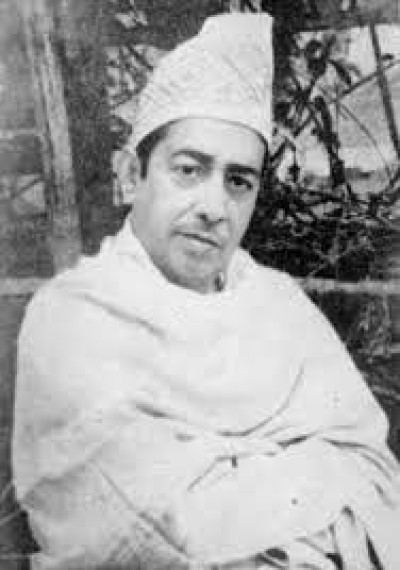Life & Legacy
He was born on 19 August 1904, near the banks of the Dikhow River in Sibsagar, Assam, to Radhika Prasad Barua and Himala Devi. His great-grandfather, Jaduram Deka Barua, authored the first bilingual Assamese dictionary in 1839, laying the foundation for linguistic development in the region. Growing up in an intellectually rich environment, Parbati Prasad’s creative talents flourished early, establishing him as a prominent figure of Assamese romanticism.
He pursued a degree in Philosophy at Scottish Church College under the University of Calcutta. During his time in Kolkata, he was influenced by the cultural scene — watching plays, Rabindra Nritya Natyas (Tagore’s dance dramas), and musical events inspired by Rabindranath Tagore. These experiences deeply impacted his artistic sensibility and later enhanced his compositions in music and dance.
At the age of ten, he first appeared on stage, playing the role of Joymoti in a play performed by a local theatre group. In 1921, he launched a handwritten monthly magazine titled ‘Jhupitora’. Around the same time, with his elder brother and friends, he founded a literary society called ‘Bimalalaya’, which hosted regular literary discussions. This group later produced another handwritten magazine named ‘Ghar Jeuti’. During this period, he began composing lyrical poems and singing them to the tunes of Assamese folk music, classical melodies, and Borgeets—at a time when most modern Assamese songs were influenced by Bengali tunes.
In 1934, Parbati Prasad married Padma Kumari of Mangaldoi, Assam. A few years later, in 1939, he established the Raidang Tea Estate, followed by the acquisition of the Sonarie Tea Estate in 1947. Despite his business ventures, his passion for music and drama remained strong. During this era, he composed two dance dramas — ‘Lakhimi’ and ‘Sonar Soleng’.
Parbati Prasad gained widespread popularity after he produced, directed, acted in, and composed music for Rupohi (1940), the fourth Assamese film. He even coined the term "Bol Sobi" to describe ‘talkies’ or sound films. His involvement in Assamese theatre was equally impactful, as he introduced progressive trends and choreography that blended traditional Assamese dance forms with modern elements — moving away from the dominant Bengali influences of the time.
Over his lifetime, Parbati Prasad authored two collections of poetry: ‘Bhonga Tukarir Sur’ and ‘Khel Bhonga Khel’. The Asam Sahitya Sabha later compiled his literary works into a collection titled ‘Parvati Prasad Baruva Rasanawali’, which also included two previously unpublished works, ‘Mayapi’ and ‘Mou Tukari’. Additionally, he published three songbooks: ‘Gungunani’, ‘Luiti’, and ‘Sukula Dawor Oi Kohuwa Phul’.
His poetry has been translated into several Indian languages, including Hindi and English. The English translations, titled “If Life Be Lost” and “Life Awakens” by Paromita Das, received the Sahitya Akademi Golden Jubilee Literary Translation Award in 2007.
Between 1953 and 1964, Parbati Prasad suffered five major strokes. Sadly, on June 7, 1964, he passed away following the fifth and final stroke, leaving behind an enduring legacy that continues to inspire Assamese literature and culture.
